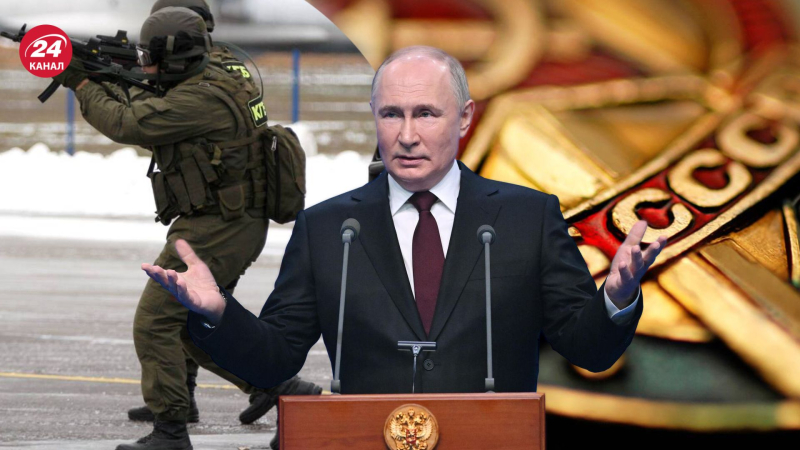Scandalous facts from the life of Vladimir Putin/Collage 24 Channel Vladimir Putin won the so-called “elections”. Therefore, he will continue to be the president of Russia. Meanwhile, the Western media decided to remember how he rose from a KGB agent to the post of head of state. Sky News journalists collected the most important things in one material from the life of Vladimir Putin. About his path to becoming and how he reached essentially absolute power in Russia. If we start with the basics, then Vladimir Putin was born on October 7, 1952 in Leningrad (now Saint Petersburg). It is known that he had two brothers. True, they died before the future dictator was born. Now let's go through the key stages of his life. Journalists note that after graduating from Leningrad State University in 1975, Vladimir Putin joined the USSR intelligence service. We are talking about the KGB. And 10 years later – in 1985 – he was sent to Dresden. There, the future president of Russia was looking for East Germans who had good reasons to go abroad. After that, he recruited them to engage in espionage in the West. In the 1980s, according to unconfirmed reports, Putin worked in New Zealand. And he was recalled to Leningrad in 1990. The material mentions that Vladimir Putin became an adviser to Anatoly Sobchak, one of his former law professors. The latter subsequently left to take up the post of head of the Leningrad city council. Putin moved to Moscow in 1996, where he began his work in the Kremlin. In 1998, he was appointed chairman of the Russian Federal Security Service —the successor to the KGB after the collapse of the USSR. Only a year has passed , and Boris Yeltsin, then the Russian president, appointed Putin one of the first deputy prime ministers. After that, he became acting prime minister. Yeltsin subsequently resigned, handing control of the country over to Putin. He was first appointed acting president, and officially elected in 2000. Where Putin is, there is death. Several months have passed since he was elected president. And already in the summer of 2000 he was criticized because of disaster of the submarine “Kursk”, which occurred on August 12. Then all 118 crew members were killed. Putin, when he learned about the tragedy, first continued his vacation in Sochi. Also, he did not immediately accept international help. 40 Chechen militants took 912 people hostage in the Moscow theater on Dubrovitsa on October 23, 2002. Three days later, special forces stormed the premises. He did this after an unknown gas was pumped into the hall and killed all the militants, as well as 130 hostages. In particular, foreigners. On Vladimir Putin's birthday, October 7, 2006, journalist Anna Politkovskaya was shot dead in the lobby of her own house. Before her death, she exposed corruption in the Russian army, as well as the military in Chechnya. Her murder led to widespread claims that Vladimir Putin did not do enough to protect the media. He is a former KGB agent who after escaped to the UK, decided to work for MI6. And in November 2006, Litvinenko fell ill after meeting two former KGB agents at a hotel in London. He died a difficult death, because he was poisoned with tea containing polonium 210. We are talking about a rare and very heavy radioactive isotope. Litvinenko accused Putin of having ordered his murder. The material notes that pro-Russian forces in February 2014 captured a number of military bases on the Crimean peninsula. It is said, in particular, about the headquarters of the Ministry of Internal Affairs of Ukraine in Sevastopol. After this, Vladimir Putin signed an agreement that allegedly annexed the peninsula to Russia after the so-called “referendum”. The Kremlin dictator also practiced similar scenarios in the Donetsk and Lugansk regions. On the streets of Great Britain in March 2018, former Russian spy Sergei Skripal and his daughter Yulia were poisoned. They did this with the help of a Soviet-made nerve agent, whose name is known throughout the world. We are talking about “Novichok”. Sergei and Yulia were hospitalized in serious condition. They were subsequently discharged. The Kremlin, of course, denied any involvement in this attack. It is no secret that Vladimir Putin tried to suppress the opposition. First of all, they talked about opposition to Alexei Navalny, who actively criticized the Russian President. It is known that Navalny lost consciousness on board a domestic flight in Russia in August 2020. He underwent treatment in Germany, and after his recovery he returned to Russia. But he did not walk free for long, because he was soon thrown behind bars. And already in February 2024, the so-called “oppositionist” died in a colony. Journalists also noted that Putin ordered a full-scale invasion of Ukraine in February 2022. This was preceded by weeks of buildup of Russian forces along the borders of our state. He hoped that he would win in three days, but our courageous military broke the dictator’s teeth. The so-called “elections” that took place from March 15 to 17 were also highlighted. During them, Vladimir Putin managed to retain his place in the Kremlin for another six years. At the same time, they note that Boris Nadezhdin, who was the most famous anti-war candidate, was not allowed to participate in the elections. Vladimir Putin himself received a record 87.28%. Interestingly, in many areas outside of Russia, the Kremlin dictator lost to his opponents.Putin and his work for the KGB
Yeltsin’s favorite and head of the Russian FSB
Putin and the Kursk submarine disaster
Nord-Ost tragedy
Murder of journalist Anna Politkovskaya
Poisoning of Alexander Litvinenko
Putin and the annexation of Crimea
Poisoning of the Skripals
Navalny's death in a colony
Putin and the full-scale invasion of Ukraine
The so-called “elections” in Russia
From KGB agent to president: Sky News highlighted scandalous facts from the life of Vladimir Putin
58

